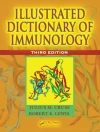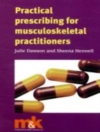The One-Stop, Comprehensive Rhinoplasty Guide from the Global Masters
The first edition of Dallas Rhinoplasty: Nasal Surgery by the Masters published in 2002 compiled the knowledge and concepts developed in large part by the original faculty of the Dallas Rhinoplasty Symposium led by Jack P. Gunter, MD. Now in its fourth edition, this widely acclaimed textbook has become the global educational rhinoplasty source and Nose Bible for Rhinoplasty! Edited by world-renowned rhinoplasty surgeon Rod J. Rohrich, with Jamil Ahmad and William P. Adams, Jr., the completely new edition features advances and innovations in rhinoplasty—from preservation to precision structural rhinoplasty finesse and techniques to proven problem-solving methods to achieve the best and most consistent results in rhinoplasty.
Consolidated in one easy-to-read volume, the new edition is organized into 12 parts, 68 chapters, and includes more than 120 videos. Each chapter is referenced as a standalone resource for rapid learning of specific techniques. This edition features advances in the field, but the goal remains true to the original edition—to help nasal surgeons achieve consistent results using careful preoperative analysis, precise operational planning, meticulous intraoperative execution, and long-term follow-up with critical evaluation of results.
Key Highlights
- Clinical pearls from the key global rhinoplasty experts
- Key points, tables, Gunter rhinoplasty diagrams, and expert tips enhance rapid acquisition and retention of knowledge
- Concise case analysis with high-quality pre- and postoperative photos
- Videos provide in-depth visual understanding of anatomy and techniques
- Complete and concise outline facilitates finding the solution to any nasal or rhinoplasty problem to guide safe and optimal surgical outcomes
- This indispensable, efficient, and reader-friendly reference is a must-have surgical companion for novice and expert rhinoplasty surgeons alike.
This print book includes complimentary access to a digital copy on https://medone.thieme.com.
Publisher’s Note: Products purchased from Third Party sellers are not guaranteed by the publisher for quality, authenticity, or access to any online entitlements included with the product.
Tabella dei contenuti
Part I: Basic Perioperative Concepts
1. Preferred Anatomic Terms for Rhinoplasty
2. Advanced Rhinoplasty Anatomy
3. Nasal Physiology
4. Medical Management of Rhinologic Disorders in the Rhinoplasty Patient
5. Preoperative Concepts for Rhinoplasty
6. Nasofacial Proportions and Systematic Nasal Analysis
7. Digital Imaging and Standardized Photography in Rhinoplasty
8. Postoperative Management of the Rhinoplasty Patient
9. Coding for Rhinoplasty Procedures
Part II: Basic Surgical Concepts
10. Getting It Right the First Time—Precision Rhinoplasty Planning and Execution
11. Frequently Used Grafts in Rhinoplasty: Nomenclature and Analysis
12. Harvesting Autologous Grafts for Rhinoplasty
13. Principles of Preservation Rhinoplasty
14. Closed Approach in Primary Rhinoplasty
Part III: The Dorsum
15. Evaluation and Surgical Approach to the Nasal Dorsum: The Component Approach
16. The Role of Spreader Flaps, Spreader Grafts, and Tension Spanning Sutures
17. Nasal Osteotomies—Structural Preservation
18. Dorsal Augmentation: Role of Rib Cartilage Grafts
19. Dorsal Augmentation: Diced Cartilage—Fascia
Part IV: The Tip
20. Nasal Tip Surgery Finesse: Anatomy and Technique
21. The Nasal Tip Tripod: Controlling Tip Projection and Rotation
22. Nasal Tip Grafting: Traditional Techniques and Modern Refinements
23. Correction of the Bulbous and Boxy Nasal Tip Deformities Using the Open Approach
24. Role of the Columellar Strut Graft
25. Predictable Control of Tip Projection and Rotation: Septal Extension Grafts
26. Decreasing Nasal Tip Projection: An Incremental Approach
27. Adjusting Rotation of the Nasal Tip
Part V: Alar Rims
28. Importance of the Alar–Columellar Relationship
29. Finesse in Alar Contour Grafts: Four Subtypes
30. Lateral Crural Strut Grafts
31. Retrograde Alar Contour Grafts
Part VI: Alar Base
32. Aesthetics and Surgical Refinement of the Nasal Base
33. Alar Base Surgery: Diagnosis and Analysis
34. Finesse in Alar Base Surgery
Part VII: The Chin
35. Important Role of Profileplasty in Rhinoplasty
36. Management of the Chin in the Rhinoplasty Patient
37. The 7-Step 7-Minute Chin Augmentation
Part VIII: Secondary Rhinoplasty
38. Why Primary Rhinoplasty Fails
39. Structural Grafting in Secondary Rhinoplasty
40. Achieving Consistent Results in Secondary Rhinoplasty
41. Advances in Secondary Rhinoplasty: Personal Perspective
42. Role of Fresh Frozen Rib in Secondary Rhinoplasty
Part IX: Management of Airway Dysfunction
43. Surgical Management of the Nasal Airway
44. Classification of Septal Deviation and Reconstructive Technique
45. Acute Nasal Fracture Management: Minimizing Secondary Nasal Deformities
46. Comprehensive Management of the Deviated Nose
Part X: Ethnic Rhinoplasty
47. The Black Patient’s Nose
48. The Hispanic Patient’s Nose
49. The Middle Eastern Patient’s Nose
50. The Asian Patient’s Nose
Part XI: Special Topics
51. The Important Role of Dead Space Closure in Rhinoplasty
52. Correction of the Long Nose
53. Elongation of the Short Nose
54. The Importance of the Depressor Septi Nasi Muscle in Rhinoplasty
55. The Aging Nose
56. The Male Nose
57. Cleft Rhinoplasty
58. Management of the Cocaine Nose
59. The Role of Soft Tissue Fillers in Rhinoplasty
60. Prevention and Management of Rhinoplasty Complications
61. Patient Education
62. Management of the Unhappy Patient
Part XII: Personal Approaches
63. Rohrich’s Approach: Primary Structural Rhinoplasty
64. Ahmad’s Approach: Primary Structural Rhinoplasty
65. Rohrich’s Approach: Preservation Rhinoplasty
66. Kosins’ Approach: Preservation Rhinoplasty
67. Most’s Approach: Preservation Rhinoplasty
68. Rohrich’s Approach: Secondary Rhinoplasty












